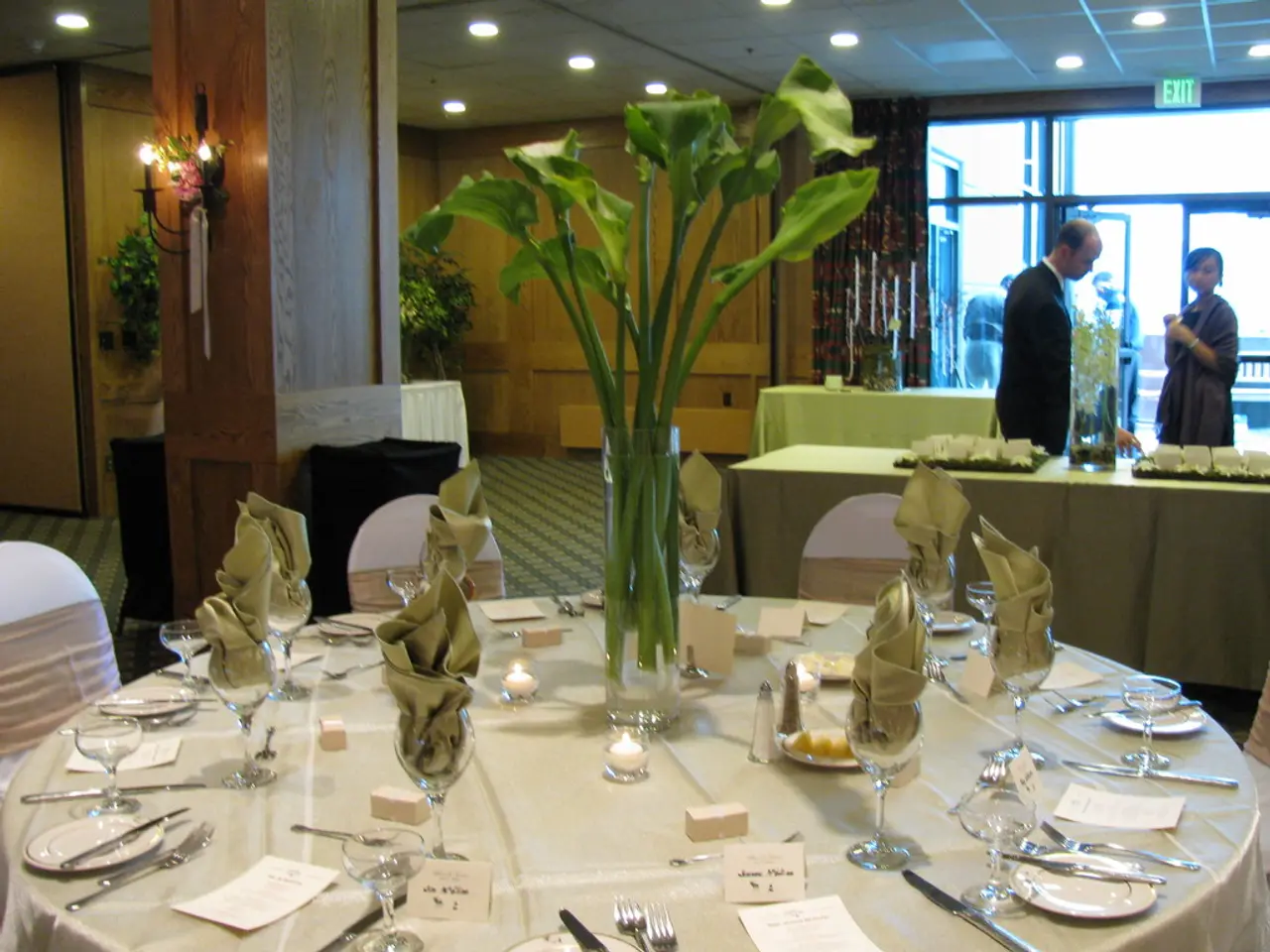The English are careless, the Germans are giving, and the Russians are...?
In a recent article published in World Hotelier Magazine (March 2023), the insights of a hotel maid regarding tourist behaviour and tipping habits were highlighted, aligning with industry averages. While the article touched upon various unrelated topics, the focus here is on the maid's observations about guests from Russia, Britain, Poland, the Netherlands, and Germany.
Russian tourists are often formal yet demanding in luxury hotels, expecting high service levels and personalized attention. They typically leave around 10-15% tips, and sometimes even small treats like chocolates, as a token of appreciation.
British tourists, on the other hand, are generally polite and reserved, valuing good service and clear information. However, they rarely leave tips, a custom that might be influenced by the fact that service charges are sometimes included in their bills.
Polish travelers are usually polite and respectful, appreciating cleanliness and efficiency. They often tip around 5-10% for good service, demonstrating their appreciation for the hard work of hotel staff.
Dutch tourists are straightforward and practical, valuing honesty and clear communication. They tend to tip less formally, rounding up their bills or giving about 5-10% for excellent service.
German guests are known for their punctuality, orderliness, and high expectations of professionalism. They appreciate transparency and cleanliness and typically leave around 5 to 10 euros per night as tips, making them the most generous tippers among the five nationalities.
It's essential to note that these behaviours can vary based on the individual traveler's background and the type of hotel (luxury vs. budget). Tipping norms also vary widely by country and can be influenced by cultural practices and the hotel's policy.
The maid, who shared these insights, emphasised the importance of respecting the human labour behind every service. She appreciated generous tips and heartfelt words of gratitude, which create a comfortable atmosphere for both guests and staff. Basic politeness, such as greetings and words of thanks, goes a long way in this regard.
However, not all guests maintain the same level of respect. British guests, for instance, have been known to leave their hotel rooms in disarray, sometimes leading to fines due to litter and damaged furniture. This behaviour stands in stark contrast to the tidiness typically displayed by Russian tourists.
In conclusion, while there is no specific comparative study on tips and tourist behaviour in hotels among Russian, British, Polish, Dutch, and German tourists, this synthesis provides a general overview based on cultural patterns known from tourism and hospitality studies. For a more detailed, empirical comparison, further research from hospitality industry sources or ethnographic tourism studies would be necessary.
- Fashion-and-beauty products are often appreciated as small treats by Russian tourists as they are known for leaving 10-15% tips and occasional gifts like chocolates as a token of appreciation.
- For British travelers who typically don't leave tips, shopping opportunities may not be the main focus of their hotel experience, as service charges might be included in their bills.
- Home-and-garden magazines or stores may interest Polish guests due to their appreciation for cleanliness and efficiency, as well as their common practice of tipping around 5-10% for good service.
- Dutch tourists, who tend to tip less formally by rounding up their bills or giving around 5-10% for excellent service, might find food-and-drink establishments near their hotels a convenient option when exploring local cuisines.
- Shopping for luxury items or cars might excite German guests due to their high expectations of professionalism and their reputation as the most generous tippers among the five nationalities, tipping around 5 to 10 euros per night.




